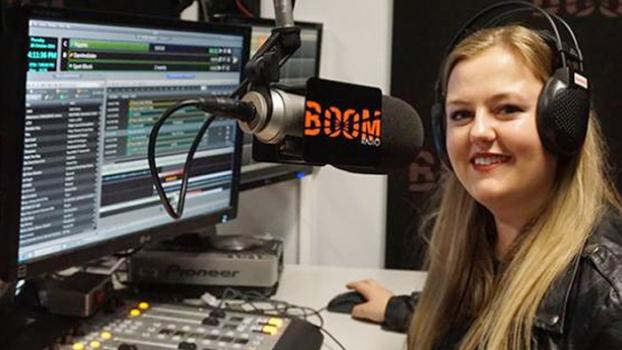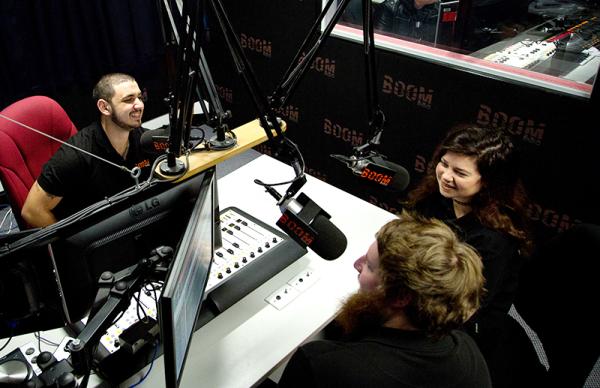
Radio presenter
Radio presenters are the public voice of commercial, public and community radio stations. They compile and present radio programs to the public on a range of topics and with a specific musical or topical focus that may vary according to the type of station for which they work or their particular skills or areas of interest. Their on-air presentation may focus more on a particular style of music, on interviewing and talkback, or on a specific topic like sports, cooking, current affairs or gardening. Radio presenters may also host outside events such as community fundraisers and competitions.
Working conditions
Radio presenters usually work for a specific radio station, which may be located either in the same location as their broadcasting facility, or somewhere completely different. Most radio stations are located in cities and major towns, although some may be located in smaller, regional areas. Because radio is a 24-hour phenomenon, some radio presenters may be required to work outside standard business hours. For example, they may present a breakfast program or a late-night program. However, many radio stations also pre-record programs that are broadcast late at night.
Tools and technologies
Radio presenters need to be familiar with a radio broadcasting mixing desk and the equipment that accompanies it, such as CD or vinyl record players, external phone lines, and computers. They need to be aware of on-air broadcasting techniques, and may also need to be familiar with digital or analogue recording and sound editing techniques, such as those used when compiling news stories or other radio presentations.
Education and training
It is possible to work as a radio presenter without any formal qualifications and get training on the job. However, entry into this occupation may be improved by obtaining a qualification in broadcasting or a related area.
Many radio presenters are employed by broadcasters because they may have a high profile in a field related to the area in which they present, such as the sporting or popular music industries.
The Certificate IV in Screen and Media, Diploma of Screen and Media (Radio Broadcasting) and the Advanced Diploma of Screen and Media (Radio Broadcasting) are offered at TAFE colleges and other registered training organisations throughout Western Australia. To find a training provider near you, browse the Jobs and Skills WA website - external site or visit the My Skills website - external site.
You can also complete a traineeship in broadcasting. The broadcasting (radio) (level 3 and level 4) traineeships usually take 12 months to complete.
You can also complete a degree in communications, media or a related area. Most universities in Western Australia offer relevant courses. Contact the universities you are interested in for more information.

Free support and assistance
Your local jobs and Skills Centre can provide free information, support and assistance to help you decide on the best training options to meet your goals.
Disclaimer
The information presented on the occupation profiles within this website is offered as a guide only.

